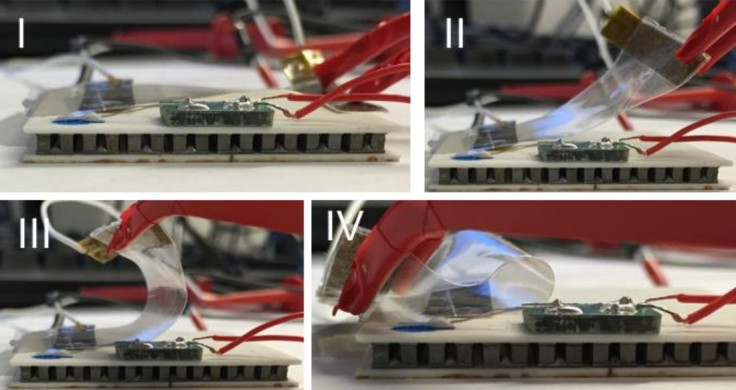Artificial Skin Update: Jelly Ingredient Could Help Amputees Feel Temperature Again

Pectin is used in cough drops, jams and all sorts of recipes. And now prosthetic limbs?
Researchers have mixed the substance with water to create a film as thin as a human hair that can sense temperature, according to a statement from the California Institute of Technology, and can be used as an artificial skin for amputees and in high-tech bandages. The university explains that as the pectin heats, it releases calcium ions, producing a detectable electrical response. It also compares the process to how vipers sense their prey by detecting heat the creature is giving off.
Read: Here’s Why Your Skin Doesn’t Leak
“Pectin is widely used in the food industry … so it’s easy to obtain and also very cheap,” Caltech's Chiara Daraio, professor of mechanical engineering and applied physics, said in the statement.
And the membrane is transparent and flexible, so it can be placed onto prosthetic limbs to help amputees feel temperature or added to a bandage to signal doctors whether an infection — which generates heat — is forming.
According to the research from the engineers and scientists at both Caltech and ETH Zurich, the new film is more sensitive to temperature changes than others like it within a range of about 45 degrees Celsius.
Read: Artificial Blood Works in Emergencies
They are also built to last: “The pectin films are ultra-low cost and scalable, insensitive to pressure and bending and can be used to augment temperature sensing when integrated in synthetic skin platforms,” the authors wrote.
If the team can double the sensitivity range of their pectin film to detect hotter temperatures, it could have industrial uses as well, Caltech says. “They will need to change the fabrication process they now use to create the material, as that process leads to the presence of water — which tends to bubble or evaporate at high temperatures.”
See also:
Published by Medicaldaily.com



























